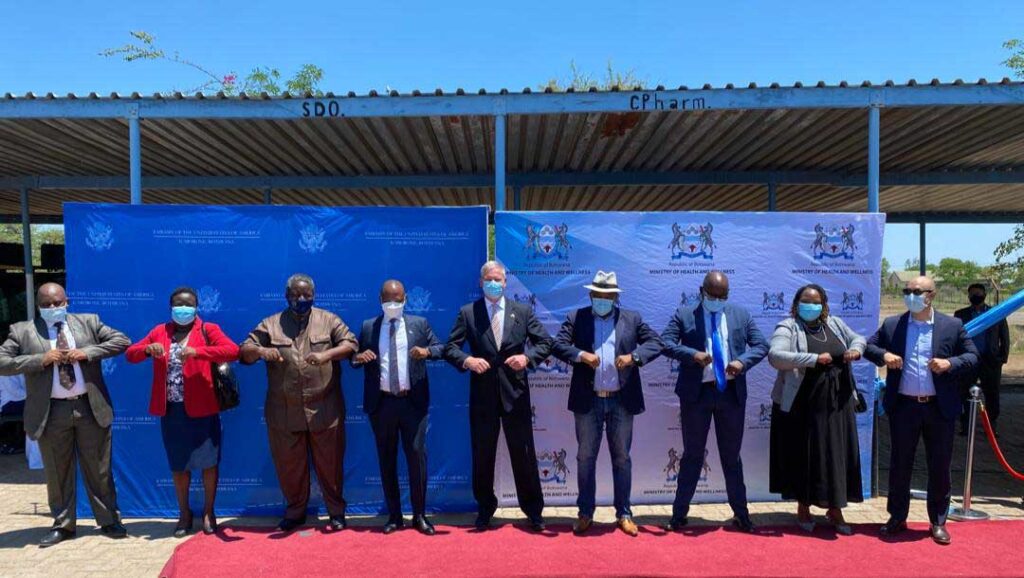ADF STAFF
About three weeks after the COVID-19 omicron variant was discovered in Botswana, the U.S. government donated two coronavirus isolation facilities in the central town of Bobonong. The facilities, worth more than 2.9 million pula ($246,400), will support COVID-19 prevention measures in the region.
The U.S. previously provided four COVID-19 isolation centers in Kasane, near the borders of Botswana, Namibia, Zambia and Zimbabwe; Maun, in north-central Botswana; and Ghanzi, a town in the Kalahari Desert in western Botswana.
“Beyond helping Botswana mitigate the effects of COVID-19, these isolation facilities are part of a broader United States effort to help Botswana’s economy,” U.S. Ambassador Craig T. Cloud said during a handover ceremony on December 7. “So far, the U.S. government has contributed 146 million pula [$12.4 million] to fighting coronavirus in Botswana.”
Cloud said the investment in health infrastructure will create jobs for local contractors and laborers. The clinics are also expected to benefit community health workers, policymakers, ministries that manage and operate community-based health services, and local businesses that provide health services.
Of the $12.4 million the U.S. has earmarked for Botswana’s COVID-19 response, $7.2 million is for infection prevention and control measures.
The U.S. has also helped Botswana develop an emergency supply chain plan to ensure that people have access to lifesaving medication during the COVID-19 pandemic and potential future pandemics. They have also developed radio messages and other communication tools to inform the public about coronavirus risks and prevention measures via social media and radio.
Declining Infection Rates
Unlike South Africa, where COVID-19 cases have surged since the omicron variant was discovered in November, Botswana has reported a decrease in coronavirus cases.
The country’s COVID-19 Task Force scientific advisor Mogomotsi Matshaba told Voice of America in early December that the few Batswana infected with omicron had mild symptoms and did not require hospitalization. But Matshaba added that the situation could quickly change at any time.
“The new number of active cases has decreased to 431, a positive development that we encourage all of you to continue to work together so that it remains low,” Matshaba said. “The whole country remains green in terms of the COVID zones meaning the disease activity is relatively low, but it doesn’t mean there is no disease.”
In an address to the nation President Mokgweetsi Masisi urged all Batswana to continue practicing prevention measures.
“To date, all our key indicators remain stable,” Masisi said. “This is comforting although it still does not warrant any complacency on our part in terms of behavior and other attitudinal patterns towards this dreadful disease. We are actively monitoring the evolving situation in view of the new variant of concern.”

